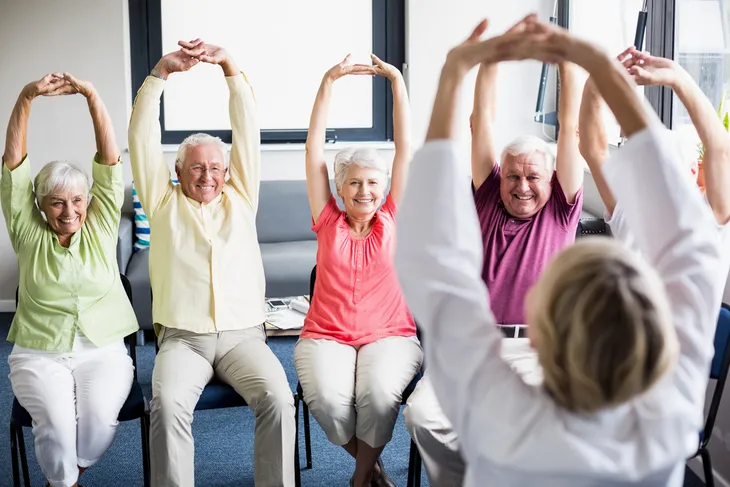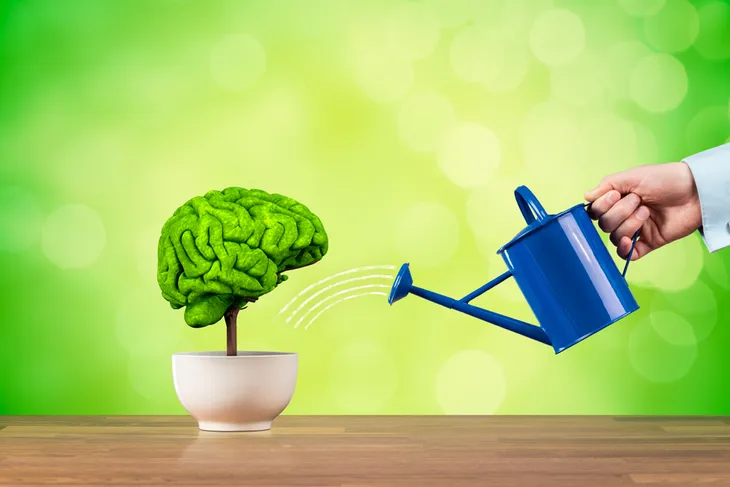No one is getting younger. You’ve heard that expression before (unless you’re living in seclusion with a wifi connection), but what does it actually mean? While we may not be able to run as fast as we used to, or even look quite the same, it’s not all bad news.
In fact, for some, aging means a chance to see things in perspective, which is not always easy when you’re young and in the thick of things. It also means you have more inner peace and confidence. Let’s take a look at some time-tested facts about aging…
Want senior content delivered straight to your inbox? Sign up for our exclusive email list and receive articles and news on diet & nutrition, fitness, and mental health dedicated specifically to our senior audience!
Aging Might Make You Happier
According to an article from the Huffington Post, a study showed that people are most happiest in their youth, and not that happy again until their 70’s and even early 80’s. “They were least happy during middle age,” it adds.
The Post explains another study showed people grew happier at age 65 (any coincidence that this is the average retirement age?), with the happiness levels growing until age 85 (and beyond). “Some experts believe it is because older people are able to tap into the toolbox of social and emotional instincts they’ve built with experience,” it reads.
Your Biological Age and Actual Age May Differ
You know how some younger people might say in passing, “I feel like I’m 75?” Well, turns out there could be some truth to that. An article in Medical Daily notes that the human body has both biological and chronological ages, and they can differ quite significantly (for example, you may think someone is 55, but they’re really only 40).
Biological age seems to be connected to things called telomeres, which are “the protective ends of chromosomes,” according to the source. It adds that when a cell divides, a telomere “bead” falls off the chromosome. “It appears there is a direct correlation between telomere length and biological age,” it explains. If your telomeres get too short, you could wind up in an early grave or be at higher risk for serious illnesses, it adds. Here’s a fun test to guess your biological age.
The Percentage of Older People is Growing Worldwide
The World Health Organization (WHO) explains that the world’s population is aging rapidly, and expects the number of people aged 60-years or older to rise from 900-million worldwide to 2-billion by 2050.
The rate of people hitting their golden years is faster than ever before, adds WHO. “For example, while France took 150-years to go from 10-percent to 20-percent of the population reaching older than 60 years, according to the organization, “places like Brazil, China and India will have slightly more than 20 years to make the same adaptation,” it adds. The same source notes the world is “ill-equipped” to address the health needs of older people.
Your Mind Might Be Stronger
People often joke that older folks have “senior moments” or forget why they walked into a room. However, according to the Huffington Post, a University of Illinois study showed that older people working as air traffic controllers “excelled at their mentally tough jobs, and performed as well as younger peers.”
Any loss in cognitive ability is made up by experience in this case, suggests the source. It adds that you can keep your mind strong into your later years by performing regular mental exercises, as you would go to the gym to benefit your body. (Here’s a list of Tips on How Seniors Can Boost Brain Health).
Love Gets Stronger
The Huffington Post reports that not only can intimate relationships remain strong into older age, they can actually be better. The article from the Post focuses primarily on the satisfaction of women in their later years.
Even if the woman’s libido is sagging, the satisfaction from lovemaking can be higher, explains the article, backed up a study from the University of California, San Diego School of Medicine and the Veterans Affairs San Diego Healthcare System. Of the 806 study subjects, “the frequency at which women were very satisfied with their sex lives increased with respondents’ ages,” notes the source.
Drinking Soda Can Speed Up Your Clock
Put that can of soda down! It’s not only bad for your teeth (and probably loaded with caffeine), but it can also prematurely age you, according to TheWeek.com. The source explains that Harvard researchers determined that phosphate found in fizzy drinks (which gives beverages a “tangy” taste) caused mice to die earlier than phosphate-free rodents. (Check out this detailed list on Foods That Speed Up The Aging Process).
Aside from outright dying, you may be impacting your quality of life by consuming carbonated beverages. Health problems associated include “brittle bones, pancreatic cancer, muscle weakness and paralysis,” notes the source. It doesn’t mean you can’t grab a soda now and then, but it’s probably best if you don’t drink it every day.
Aging Means Shrinking Cells
You’re literally getting smaller as you age – well, at least your cells are, according to DiPatterson.com (“America’s Gerontologist”). Because of this, everything from sugars to alcohol to medications can hit you harder and faster, it adds. “That’s why older adults need less carb calories and more proteins and vegetables,” it explains.
So keep this in mind when you’re chugging coffee, fruit juice or taking vitamins. You may want to talk to your doctor about your limits as you age, and to make adjustments in your diet. Remember… everything in moderation!










